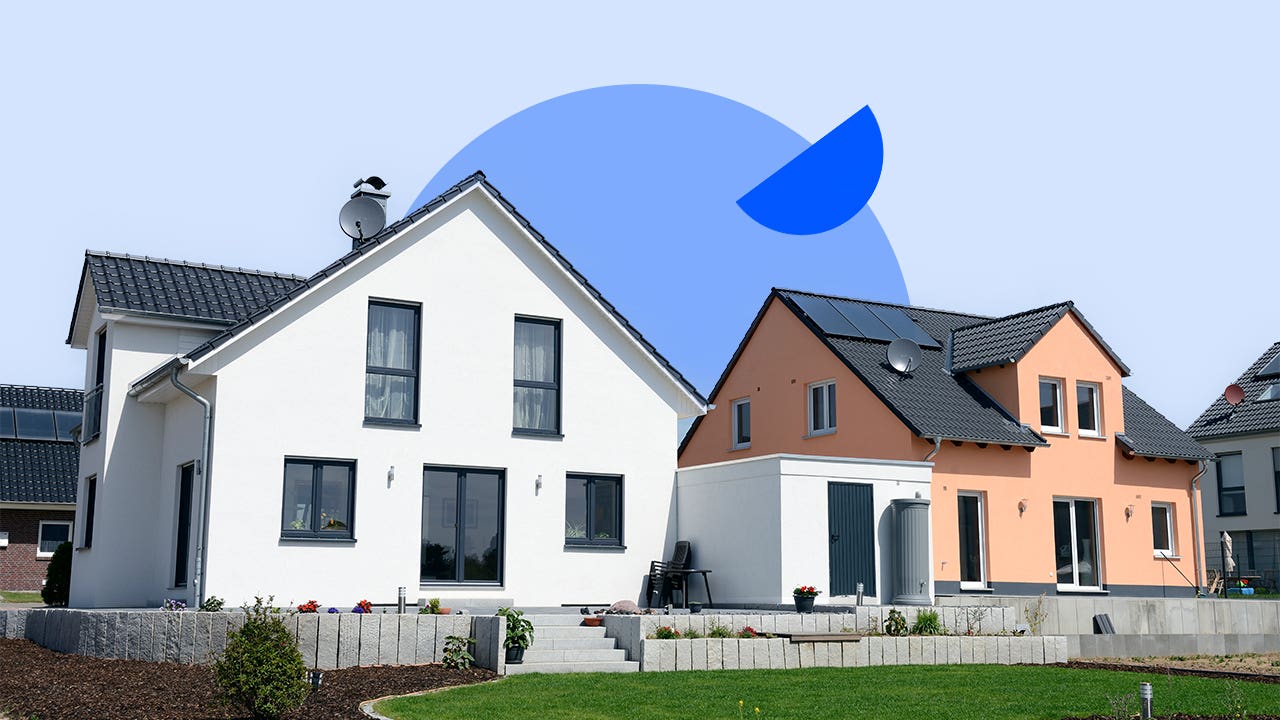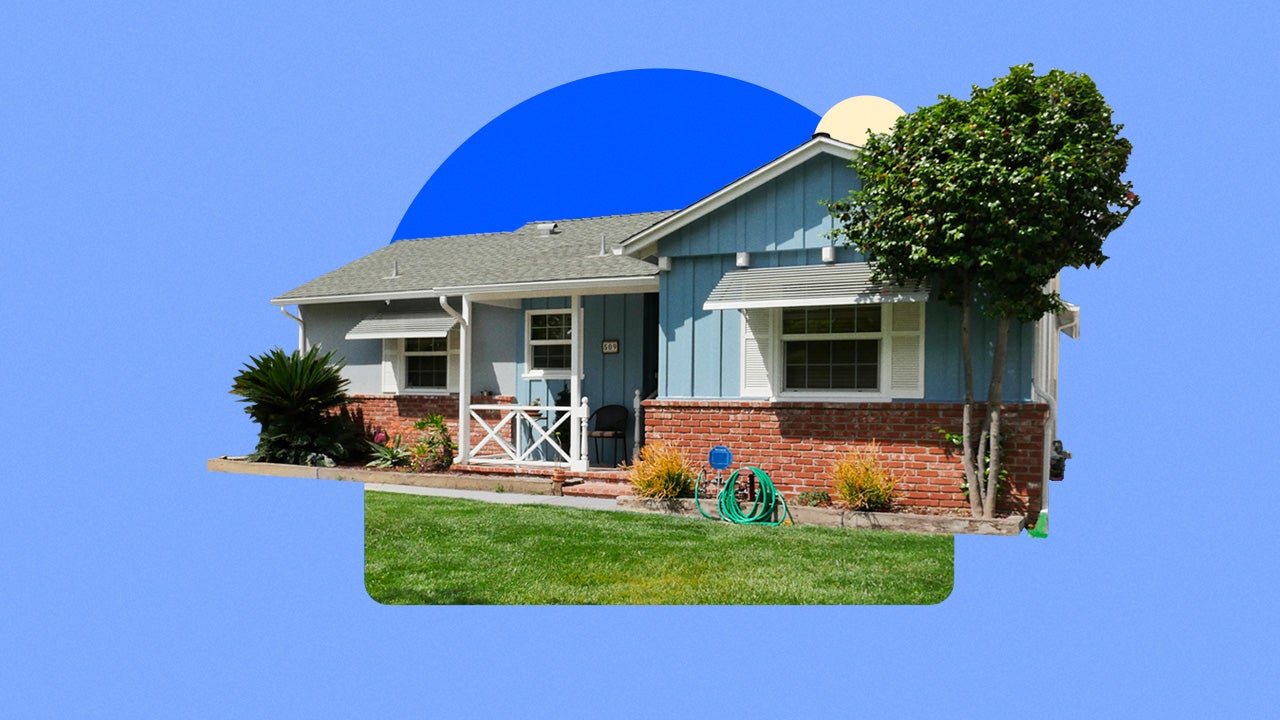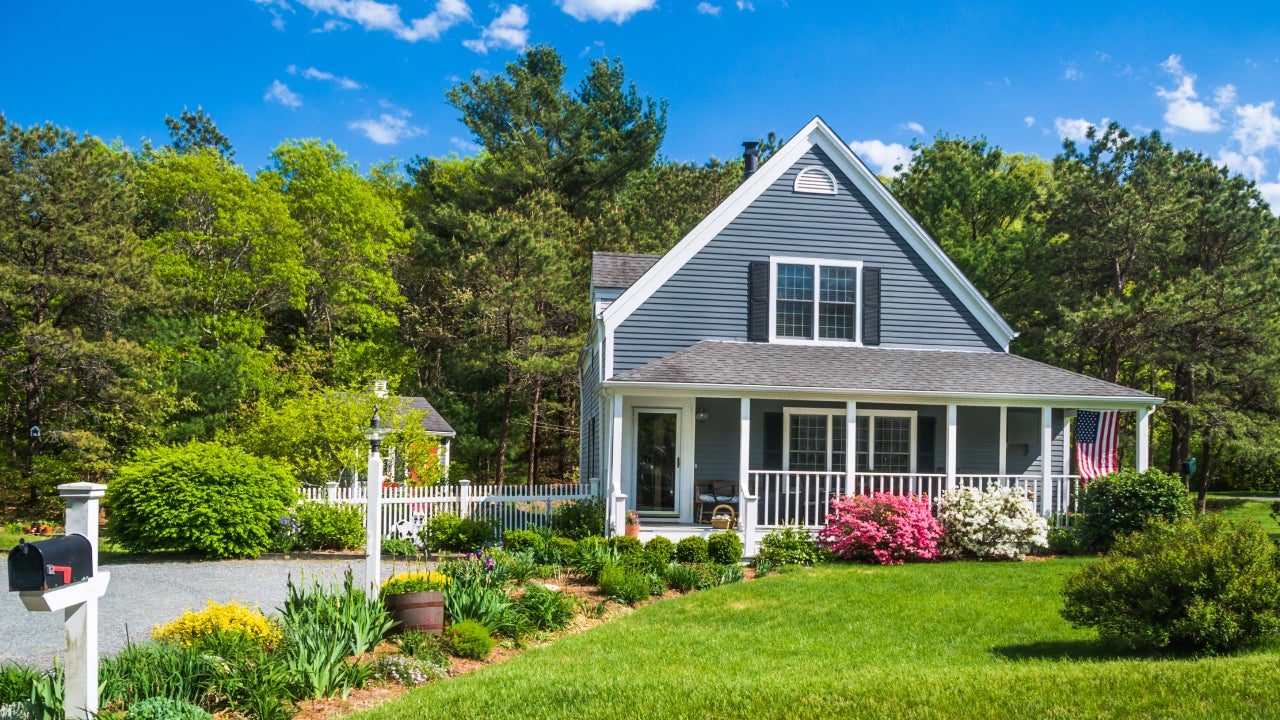Can you use home equity to buy another house?

Key takeaways
- You can use home equity to buy another house if you have a big enough ownership stake in your residence and meet other eligibility requirements. The most common ways to tap your equity are via a home equity loan or home equity line of credit (HELOC).
- Purchasing property with home equity can be cost-effective and make you a more competitive buyer.
- But it comes with certain risks and downsides: trading assets for debts, losing tax deductions, and risking your home if you miss payments.
For homeowners, home equity is an incredibly valuable asset – so valuable, in fact, that they can even tap it to buy a second home, either outright or in part. Home equity loans and home equity lines of credit (HELOCs) can offer as much as $1 million, depending on the size of the borrower’s ownership stake and creditworthiness.
Can you use home equity to buy another residence? Sure, if you have enough equity and meet the eligibility requirements. But perhaps a better question is: Should you use a HELOC or home equity loan to buy a second home? While often convenient and cost-effective, it also comes with certain risks. Let’s explore how this financing method works, including its pros, cons and alternatives.
The degree to which mortgage-holding homeowners’ equity stakes have appreciated on average in the last five years across the U.S. Of course, real estate being highly local, some states have seen a greater rise in home values than others. Equity stakes have even declined in a few unfortunate areas.
How to use home equity to buy another home
If you’d like to tap your home equity to purchase a second home, you’ve got several options. The two most common are a home equity loan and a HELOC.
While there are similarities between these two products (for example, they’re both second mortgages that require you to put your house up as collateral), there are also important differences. Here’s how each one works.
| Characteristics | Home equity loans | HELOCs |
| Distribution of funds | In one lump sum. | In a line of credit (like a credit card), so you can withdraw it gradually. |
| Interest rate | Fixed interest rate over the lifetime of the loan. | Variable interest rate that rises or falls based on the prime rate. |
| Amount you can borrow | 80-85% of equity stake. | 80-95% of equity stake. |
| Loan repayment | Immediately begin paying both principal and interest in monthly installments over the term, which can be up to 30 years. |
Draw period (the first 5–10 years): Option to only pay interest on what you’ve borrowed. Repayment period (next 10–20 years): Pay back the principal and additional interest. |
What are the pros and cons of using home equity to buy another house?
Not sure whether you should use your equity to purchase a second home? Here are the advantages and the drawbacks.
Advantages of using home equity
- You won’t have to touch your savings. By taking out a home equity loan or HELOC, you can get the cash you need to buy another home, without depleting your bank or investment account.
- You can keep your current home/mortgage. You don’t need to sell or rent out your house to get funds for another home purchase and can leave your low-interest-rate mortgage, if you have one, untouched.
- You’ll be a more competitive buyer. With the funds from your home equity loan, you can make a larger down payment on a new home — or even buy it outright. (See “Using home equity for down payments” below.) That could make you more attractive to sellers.
- You can potentially borrow at a lower cost. Home equity loans and HELOCs are secured by your property. As a result, they tend to have lower interest rates than unsecured loans, like personal loans. Your exact interest rate will depend on your financial profile and lender, of course.
- You’ll have a long time to repay. Home equity loans and HELOCs generally have long repayment periods, often up to 30 years.
Disadvantages of using home equity
- You could lose your home. Your primary residence serves as collateral for your home equity loan or HELOC. If you can’t repay it, your lender could take your house.
- You’re trading in hard-earned equity for more debt. In addition to your existing mortgage, you’ll also be responsible for the home equity loan or HELOC, as well as any mortgage on your new property.
- You might end up underwater. If you give up a big chunk of your equity and property values decline, you could end up owing more on your home than it’s worth (especially if you have multiple home-secured loans). As a result, you’d go into negative equity – otherwise known as being underwater on your mortgage.
- You’re on the hook for closing costs. Like primary mortgages, home equity loans and HELOCs come with closing costs. On average, these costs range from 2 to 5 percent of your total loan amount; sometimes, they’re closer to 1 percent. Still, it’s an additional expense.
- You might pay more interest. While cheaper than unsecured debt, second mortgages carry higher interest rates than primary mortgages and refinances. You will probably also lose some tax advantages (see below).
Tax breaks on home equity loans
If the use is for a second home, you might lose out on one fundamental plus of home equity financing: the ability to deduct the loan interest come tax time.
The IRS stipulates that for the interest to be deductible, the loan must be used to buy, build or substantially improve the residence that secures the loan. So, if you use your primary residence as collateral for an HE Loan or HELOC, and then put the money to buy a beach bungalow or mountain cabin, you can’t take a tax deduction on the interest. The idea is, you’re supposed to be enhancing your current home — the one you’re borrowing against.
There’s one way the tax break might still apply with a second-home purchase, says Dennis Shirshikov, head of content at Awning.com, a real estate investment platform: “Buying adjacent land or property can be considered part of this [home enhancement], especially if it’s demonstrable that such an acquisition improves or complements the value or utility of the main residence.”
For example, you use home equity funds to acquire some wooded acres behind your place to clear and build a little guest house; or you buy the house next door and connect it to your residence. Shirshikov recalls a case where a homeowner used a home equity loan to purchase a vacant lot adjacent to their primary home. “The rationale was that this purchase prevented a potentially obstructive development on that land, thereby preserving the home’s view and value,” he says. “The IRS accepted this as a substantial improvement to the residence.”
Even without a tax break, a home equity loan or HELOC could provide handy funds to fix up and run a second place. Home maintenance requires a considerable outlay these days, averaging over $8,800 a year, according to Bankrate’s Hidden Costs of Homeownership Study. People often overlook these routine repair and upkeep expenses when budgeting to buy a home – and perhaps that’s why Bankrate’s 2025 Homeowner Regrets Survey found that those with regrets about their home purchase most commonly named maintenance and other hidden costs. Specifically, 42 percent of them cited these costs as being more expensive than they anticipated.
Using home equity for down payments
Given the realities of today’s real estate market, coming up with down-payment cash is a big sticking point for would-be buyers. According to Bankrate’s 2025 Down Payment Survey, over four-fifths (81 percent) of aspiring homeowners say down payment and closing costs pose a “very significant” or “somewhat significant” obstacle to owning a home some day. It’s a key reason they’re holding off on home-buying.
Source: ATTOM
If you have trouble coming up with a down payment, then tapping into your home equity could be worth considering. Just one catch: Not all lenders will let you put home equity money towards a new home if you’re financing the rest of it with a mortgage. There isn’t a widespread industry rule against it, says Matt Dunbar, senior vice president, southeast region for Churchill Mortgage. But, because a down payment is supposed to be a cash contribution, an issue can arise if the money has strings attached. “The critical aspect for lenders when evaluating such scenarios is ensuring the borrower’s debt-to-income (DTI) ratio accurately reflects all financial obligations, including the new debt incurred from the HELOC” or HE Loan, he explains.
Dunbar recommends getting and depositing the home equity money well before your mortgage application, to give the funds time to season (and for your credit report to reflect the debt). You might also double-check the fine print of your home equity loan or HELOC contract, to make sure it doesn’t prohibit buying or investing in real estate.
Should you use a home equity loan to buy an investment property?
You can also use equity to purchase an investment property — real estate you’re going to sell or rent out for income. As noted above, make sure you’re working with a lender that lets you put your home equity loan funds towards this sort of purpose: Though it’s getting more common, the norm for many financial institutions, like retail banks and credit unions, is to limit home equity financing to primary homes, says Jay Garvens, head of the Colorado Springs-based Garvens Group of Churchill Mortgage. Look to other lender types: “Stand-alone mortgage companies will allow HELOC funds to be used for a second home or an investment property,” he notes.
The biggest benefit: If you’ve built up a lot of equity, your home equity loan or HELOC lets you access a large amount of money. That’s important when buying investment properties, which have stricter eligibility criteria than second homes and typically require a 15 to 25 percent down payment.
At the same time, there are risks involved in using equity to finance an investment property. Ideally, your new property will generate consistent income (via its rents or leases) to help you repay your home equity loan or HELOC on time – but, unfortunately, that’s not guaranteed.
Let’s say you remodel your new investment property with the intent to sell it for a profit. What happens if you can’t attract a qualified buyer? Or, what if you put a house on the rental market but struggle to find a reliable tenant? In either case, you’ll still be responsible for paying back what you’ve borrowed – and if you can’t afford it, you could lose your property.
Alternatives to using a home equity loan to buy a second property
Home equity loans and HELOCs are a popular financing tool these days – but they aren’t your only option. In fact, “just because you can, doesn’t mean you should,” says Greg McBride, chief financial analyst at Bankrate. “You may have a pile of equity in your primary home, but borrowing from that equity to purchase a second home is a costly proposition. This is a high cost of borrowing that puts your primary home on the line in the event of default.”
If you do think twice before tapping it, alternatives do exist. Some of these options offer funding for most of the purchase; others are more to cover the upfront expenses (down payment, closing costs). They include:
- New mortgage: “In most cases, prospective second-home buyers would be better off taking a mortgage on the property they’re acquiring instead,” says McBride. Since the new place is the collateral, the mortgage interest will be tax-deductible if you itemize (up to the overall mortgage-debt limit, which tallies all your home loans). Of course, you’ll need enough cash on hand to cover the down payment.
- Retirement savings: You might be able to put as much as $50,000 towards a second home by taking out a loan from your 401(k) plan (assuming your plan offers the option). You’ll have five years to repay it (less if you leave your job), without penalties or paying taxes.
- Personal loans: With a personal loan, you can typically borrow as much as $50,000; some lenders will even offer up to $100,000 for qualified applicants — enough to get you over the finish line in an all-cash deal. However, personal loans tend to have higher interest rates than home equity products. Also, most lenders won’t let you use an unsecured personal loan on a mortgage-financed purchase.
- Cash-out refinance: When you take out a cash-out refinance, you’ll replace your current mortgage with a bigger one. The new loan will include your remaining mortgage balance, as well as a portion of the equity you’ve built over the years — which you receive in a cash payout to use immediately.
- Reverse mortgage: If you’re 62 or older and have substantial equity in your home, you could swap some of that equity for cash with a reverse mortgage. Under this arrangement, you’ll receive tax-free payments from your lender, which must be repaid when you move out, sell your home or pass away.
- Private lending/investing: You might also consider borrowing from a peer-to-peer (P2P) lender for your home purchase. Another option: a shared equity agreement, in which an investment company gives you a lump sum in exchange for a piece of your primary home’s future (presumably appreciated) value.
FAQ
Why we ask for feedback Your feedback helps us improve our content and services. It takes less than a minute to complete.
Your responses are anonymous and will only be used for improving our website.







